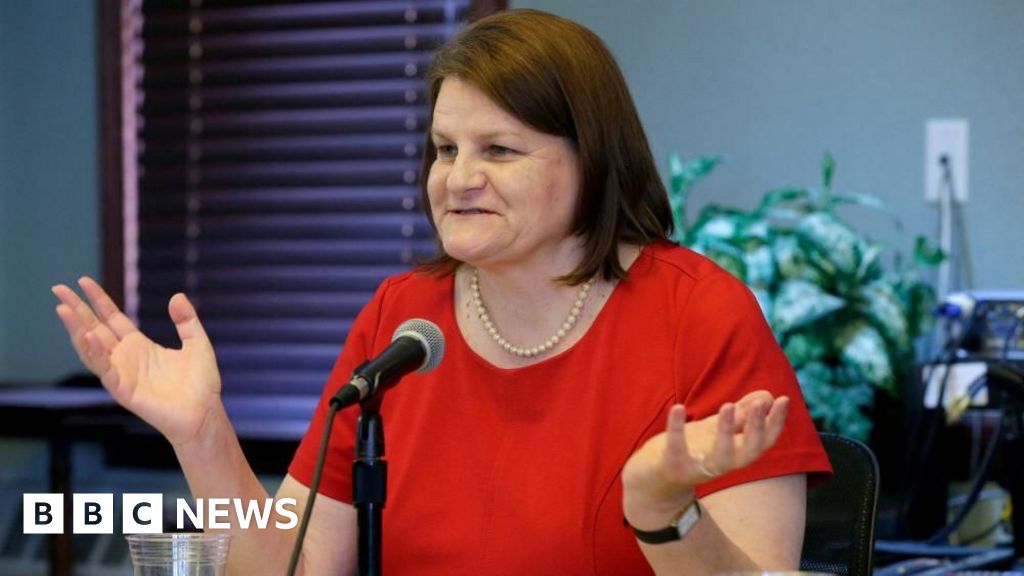Abu Ghraib torture survivors win US civil case, $42m damages | The Iraq War: 20 years on News
A United States defence contractor must pay $42m to three Iraqi men who were tortured at Abu Ghraib prison, a US federal jury has ruled.
The ruling on Tuesday ends a 15-year legal battle over the role of Virginia-based contractor CACI, whose civilian employees worked at the facility, in acts of torture that took place there.
In holding the firm liable, the jury awarded plaintiffs Suhail Al Shimari, Salah Al-Ejaili and Asa’ad Al-Zubae $3m each in compensatory damages and $11m each in punitive damages.
The decision comes after a separate federal trial in May ended in a hung jury.
‘Big day for justice’
Al Shimari, a middle school principal, Al-Ejaili, a journalist, and Al-Zuba’e, a fruit vendor, testified that they were subjected to beatings, sexual abuse, forced nudity and other cruel treatment at Abu Ghraib.
While they did not allege that CACI’s interrogators explicitly inflicted the abuse themselves, they argued that CACI was complicit because its interrogators conspired with military police to “soften up” detainees for questioning with harsh treatment.
The evidence included reports from two retired US Army generals, who documented the abuse and concluded that multiple CACI interrogators were complicit in the abuse.
Most of the abuse took place at the end of 2003, when CACI employees were working in the prison, according to the suit.
Baher Azmy, a lawyer for the Center for Constitutional Rights, which filed the lawsuit on the plaintiffs’ behalf, called the verdict “an important measure of justice and accountability” and praised the three plaintiffs for their resilience, “especially in the face of all the obstacles CACI threw their way”.
The $42m fully matches the amount sought by the plaintiffs, Azmy said.
“Today is a big day for me and for justice,” said Al-Ejaili, who travelled to the US to testify in person. “I’ve waited a long time for this day. This victory isn’t only for the three plaintiffs in this case against a corporation. This victory is a shining light for everyone who has been oppressed and a strong warning to any company or contractor practising different forms of torture and abuse.”
The lawsuit was first filed in 2008 but was delayed by 15 years of legal wrangling and multiple attempts by CACI to have the case dismissed.
‘Private contractors will be held accountable’
The trial and subsequent retrial were the first time a US jury heard claims brought by Abu Ghraib survivors in the 20 years since photos of detainee mistreatment — accompanied by smiling US soldiers inflicting the abuse — shocked the world during the US occupation of Iraq.
None of the three plaintiffs were in any of the notorious photos shown in news reports around the world, but they described treatment very similar to what was depicted.
To date, the US government has not compensated any victims of torture and abuse from Abu Ghraib, according to Human Rights Watch (HRW).
Al Shimari described sexual assaults and beatings during his two months at the prison. He also said he was electrically shocked and dragged around the prison by a rope tied around his neck. Al-Ejaili said he was subjected to stress positions that caused him to vomit black liquid. He was also deprived of sleep, forced to wear women’s underwear and threatened with dogs.
CACI had argued it wasn’t complicit in the detainees’ abuse. It said its employees had minimal interaction with the three plaintiffs in the case, and CACI questioned parts of the plaintiffs’ stories, saying that military records contradict some of their claims.
CACI argued that any liability for their mistreatment belonged to the US government. It brought up a legal principle known as “borrowed servants” doctrine to contend it shouldn’t be liable for any misdeeds by its employees if they were under the control and direction of the US Army.
Lawyers for the plaintiffs argued that CACI was responsible for its own employees’ misdeeds. They said provisions in CACI’s contract with the US Army, as well as the Army Field Manual, make clear that CACI is responsible for overseeing its own workers.
Welcoming the verdict, attorney Katherine Gallagher of the Center for Constitutional Rights said: “Private military and security contractors are put on notice that they can and will be held accountable when they breach the most fundamental international law protections – like the prohibition against torture”.
Check out our Latest News and Follow us at Facebook
Original Source







